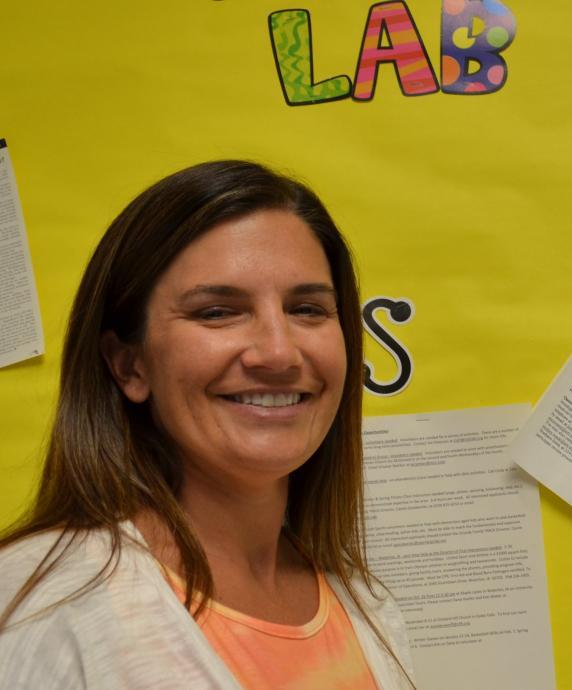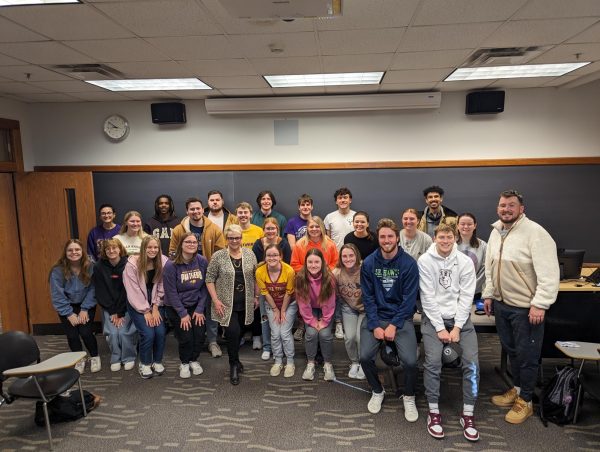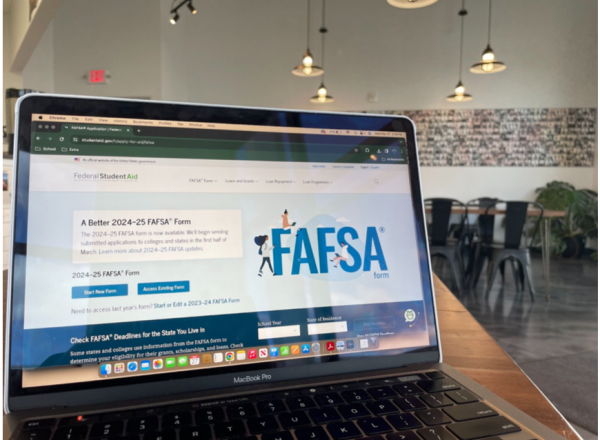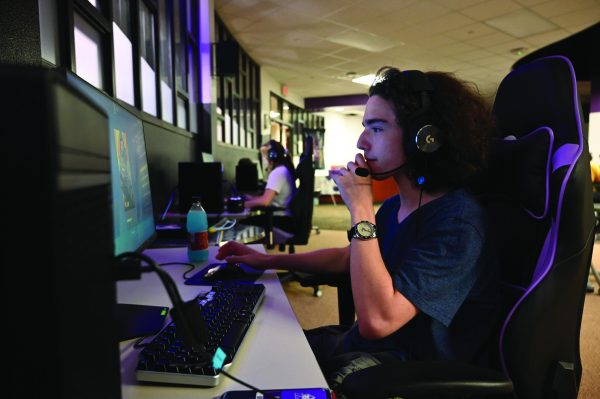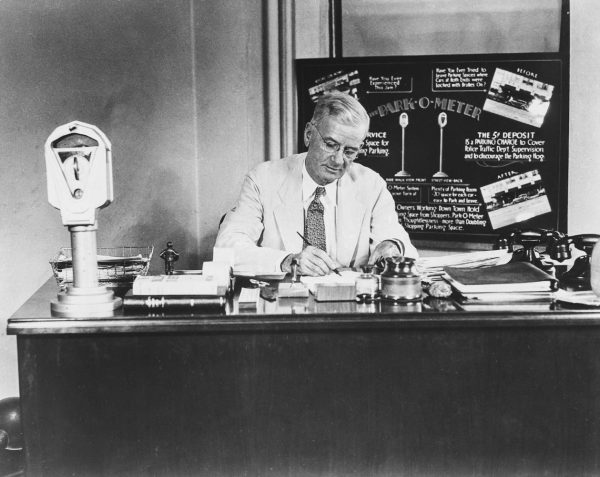From injury to inspiration
UNI professor Windee Weiss, pictured above.
Feb 3, 2022
UNI professor Windee Weiss dedicates herself to teaching, gymnastics, coaching and family
University of Northern Iowa professor and former gymnastics National Team member, Windee Weiss dedicates herself to educating the future coaches, leaders, and athletes of sports after suffering several injuries in her competitive gymnastics career.
Originally, Weiss’ was studying to be an orthopedic surgeon, but after failing organic chemistry, she decided that wasn’t for her. After blowing out her left knee and sustaining multiple other injuries in gymnastics, Weiss became fascinated with the rehabilitation and mental processes of sustaining injuries. She changed her major to athletic training and psychology, but then became fascinated with primarily the mental side: fear and motivation. She then completed her master’s in sport psychology.
Originally from Omaha, Neb., Weiss completed her undergraduate and master’s studies at Southern Illinois University in sport psychology. She then went on to get her doctorate in sport psychology at the University of Virginia. Weiss commented, “It took a while for me to decide to be a professor, but I love educating the future coaches and the people that will have leadership roles working with our future athletes.”
Weiss currently teaches undergraduate and graduate studies including Sociology & Psychology of Sport, Psychological Skills for Sport Participants, Psychology of Injury, and Motivation in Sport & Exercise at the University of Northern Iowa. After being a professor for 18 years, Weiss believes that she is about to “cast a wider net” with teaching the education of sport psychology to the future coaches for the future athletes to give the coaches “tools in their tool kit.”
She has also been the faculty mentor for several undergraduate research teams. Her research interests include sport commitment, social influence, motivation, and psychology of injury.
Weiss is very busy outside of teaching college students. She is married and has three healthy and active kids; Dash, age 15, Jersey, age 13, and Sparkes, age 10. Dash loves baseball and wants to work in the front office of the Yankees if he ends up not playing baseball. Jersey is a high-level gymnast who trains in Ames Monday through Friday. Yes, Weiss and her husband drive to Ames and back every single day for their daughter to train. Their youngest, Sparkes, is also a gymnast and plays baseball. “He has a crazy brain and is a fifth grader at eighth grade math level,” Weiss added.
Weiss began gymnastics when she was four and became a high-level competitive gymnast. “I wouldn’t say I was the best gymnast on the floor, but I definitely worked the hardest,” Weiss added. She loves gymnastics and it has been a constant part of her life since she was 4 years old. After sustaining injuries, Weiss kept gymnastics in her life by coaching and judging all throughout her college career. “I love this sport because it is such a mental sport,” Weiss said.
In addition to coaching and judging, she is a national choreographer for the compulsory routines for thousands of girls across the United States. These girls perform her floor and beam routines that she choreographs. She gets to travel all over the country teaching coaches and judges the routines and then gets to watch and judge the girls doing those routines. Weiss commented that this is her “hobby and passion that pays.”
Weiss has a passion for worrying about the below average kids when it comes to sports. She believes that with good coaching, the less experienced kids can be way better than the average athletes. “A good coach can make a good athlete be an awesome athlete,” Weiss commented.
“Everyone knows about the talented athletes; their talents are obvious. I worry about the athletes that aren’t as obviously talented. I believe with good coaching; a below average athlete can be better than the average athlete. The coach must know how to tap into their undiscovered talents. I want the below average kids to enjoy the sport, be surprised and glad how much they enjoyed it,” Weiss stated. “What tools can I give the future coaches and leaders so that they can help these athletes and to not lose athletes lost in the shuffle?”
Weiss has a very strong passion for sports, psychology, and the future. “Our best predictor of later physical activity is getting kids active when they are young and give them good experiences so that they WANT to continue to be active.”


